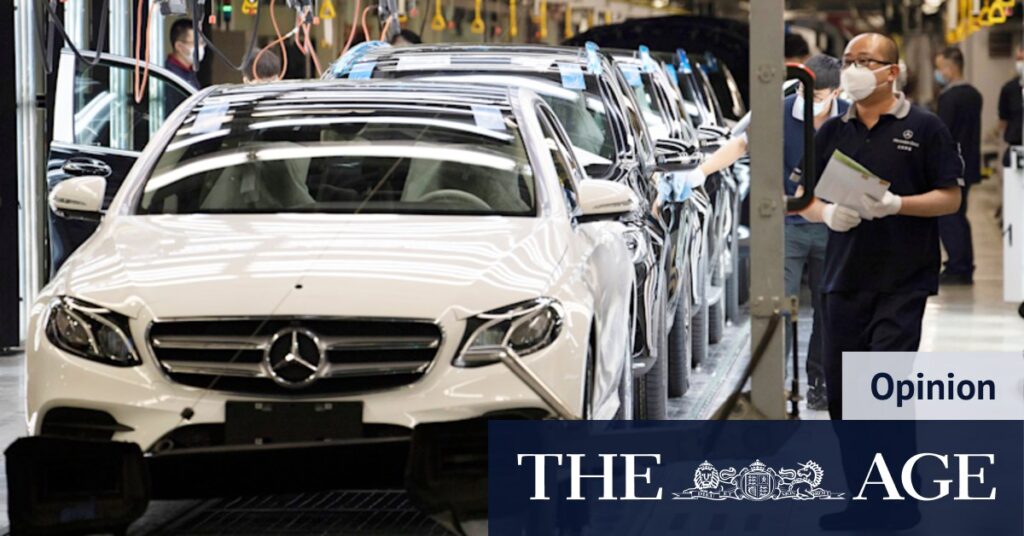
The European and US auto industries are bracing for significant disruptions in the supply chains of low-value semiconductors, critical to modern vehicles. This upheaval mirrors the chip shortages that wreaked havoc during the pandemic, extending lead times for car deliveries. The latest turmoil stems from the Dutch government’s recent seizure of Nexperia, a small semiconductor manufacturer, which has frozen the supply of microchips used in essential car electronic systems.
Earlier this month, the Dutch government gained court approval to take control of Nexperia, a subsidiary of the Chinese company Wingtech. This move has sent carmakers scrambling to find alternative suppliers. Wingtech acquired Nexperia in 2019, following its purchase by a group of Chinese investors in 2017. The situation escalated last year when the US placed Wingtech on its trade blacklist, accusing it of aiding China in bypassing US restrictions on advanced semiconductor technology.
Geopolitical Tensions and Economic Implications
The US’s decision to blacklist Wingtech prompted the Dutch government to urge Nexperia to establish operational independence from its parent company. However, Nexperia’s CEO, Zhang Xuezheng, resisted, citing shareholder rights concerns. The situation intensified on September 29 when the US extended its blacklist to include subsidiaries, directly impacting Nexperia.
This expansion led China to tighten restrictions on rare earth exports, escalating trade tensions with the US. The European Union and other global markets find themselves entangled in this conflict, as China seeks to prevent the trans-shipment of rare earths and related products.
“The US has effectively strong-armed the Dutch into taking control of Nexperia,” noted a Western executive at the company. “The Dutch government argued in court that Zhang was mismanaging the company and had conflicts of interest.”
Impact on the Automotive Sector
Nexperia, though a minor player in the vast auto components sector, holds a significant market share of about 40% in transistors and diodes. Disruption to even basic components in this complex supply chain poses a threat to production for major automakers like BMW, Mercedes-Benz, Stellantis, Toyota, and Volkswagen.
While Nexperia manufactures its chips in the Netherlands, approximately 80% are sent to China for testing and packaging. In response, China has ordered Wingtech to suspend exports and safeguard its assets, including Nexperia chips processed in China. This move further complicates the already strained supply chains.
Historical Parallels and Future Outlook
This is not the first instance of a Western government intervening in Chinese ownership of sensitive technology businesses. Last year, the British government forced Nexperia to sell its largest semiconductor manufacturing facility in the UK to a US company, citing national security concerns.
The Dutch have previously curtailed China’s access to advanced photolithography machines produced by ASML, the world’s sole producer of EUV lithography machines essential for making advanced chips. This action was also under US pressure.
In Australia, the Albanese government is contemplating how to regain control of the Port of Darwin, owned by China’s Landbridge, and is evaluating Chinese investment in the rare earth sector, following a joint investment deal with the US.
“The Nexperia saga underscores the trade confrontation between Washington and Beijing, spilling over into other economies and forcing governments and companies into difficult decisions,” observed an industry analyst.
The ongoing trade conflict could escalate further, with the US threatening to cut off China’s access to critical software, essential for designing circuits for chips. This would impact China’s smartphone, vehicle, and AI sectors, among others. In response, China could leverage its control over rare earths, crucial for various technologies.
The upcoming meeting between Donald Trump and Xi Jinping could be pivotal, with rare earths likely topping the US’s agenda, while the blacklist and semiconductors remain China’s priority.
As global supply chains face increasing vulnerability, the Nexperia case highlights the fragility of a world once built on globalization and complex interdependencies. The auto industry, along with others, must navigate these geopolitical challenges to mitigate future disruptions.





